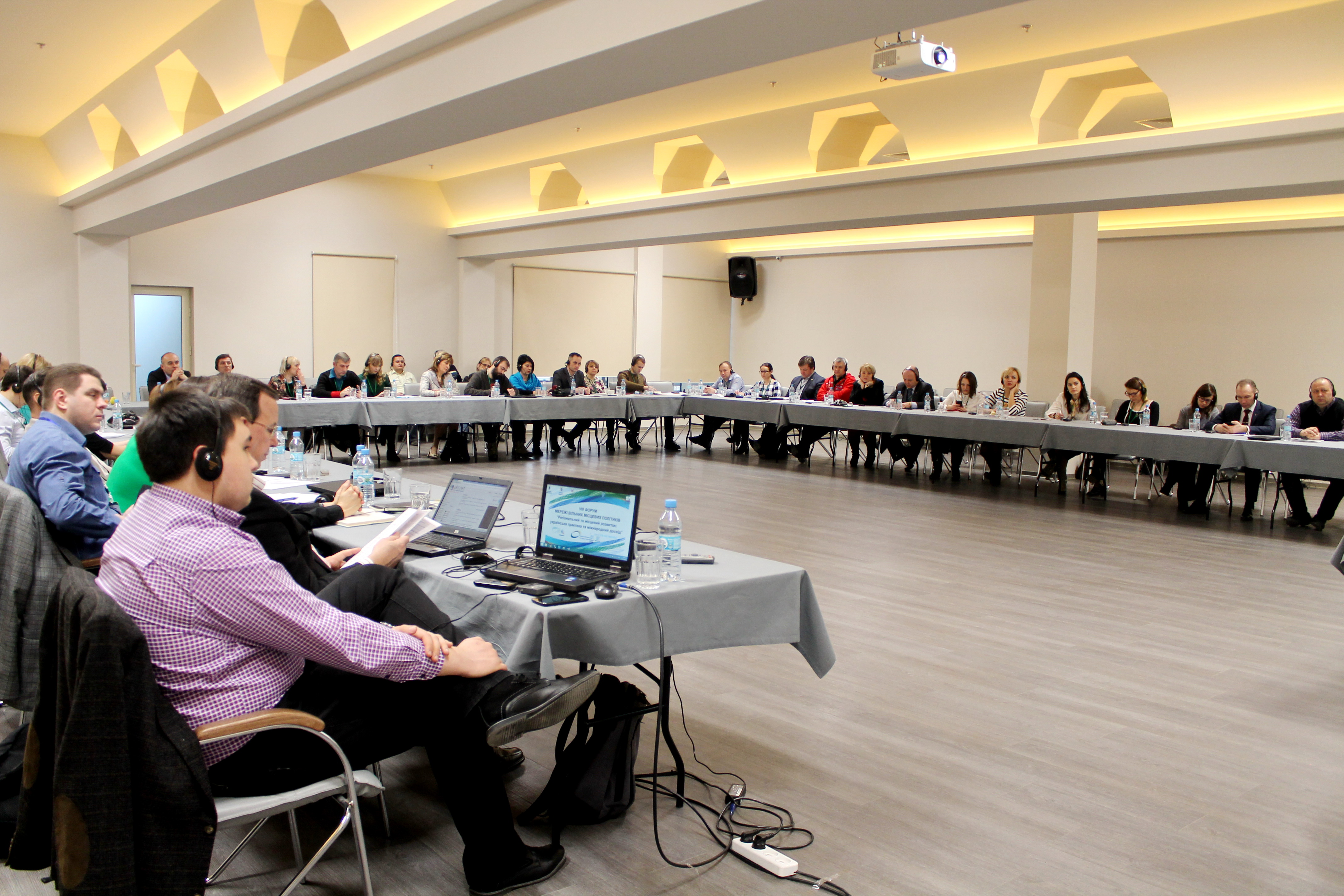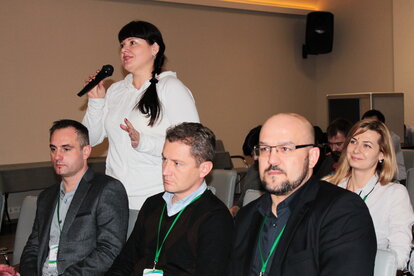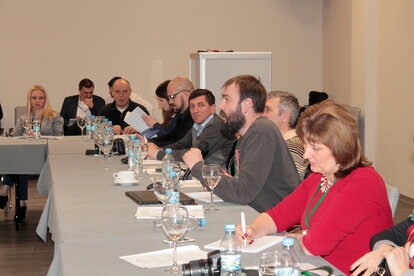“Subsidiarity As Guiding Principle of Decentralisation” in Ukraine

ELF Ralf Dahrendorf Roundtable “Subsidiarity As Guiding Principle of Decentralisation” in Ukraine
The principle of subsidiarity aims to ensure that decisions are taken as closely as possible to the citizen and by the power level acting most efficiently in a particular subject. Naturally, subsidiarity is not only EU related and there are several levels where the principle of subsidiarity should apply. In Ukraine, where decentralisation reforms are finally starting to break with the post-soviet tradition of a centralised state bureaucracy, reformers aim at modern municipal government in accordance with the principles and the spirit of the European Charter of Local Self-Government.
Friedrich Naumann Foundation for Freedom, in supporting decentralisation and local self-governance in Ukraine, is since 2014 sustaining a Network of Free Local Politicians, regularly bringing together reform-oriented local and regional representatives from across Ukraine for a process of peer review, of exchange of good practice, and of comparison between different Ukrainian regions and municipalities. Most are former activists and representatives of civil society organisations. They have been successful in the local and regional elections that took place in October 2015 across Ukraine and many are relatively new in politics.
This is why it is important for this new Ukrainian network to get input from liberal regional and local representatives from other European countries as well as from European institutions. Particularly well suited is the Committee of the Regions (COR), as it has a specific role to play in the implementation of the Ukrainian reform process as far as decentralisation is concerned. It can contribute to stimulating necessary debates, at the local level, with civil society organisations, government counterparts and all stakeholders. As such debates make reforms more visible to citizens they should accompany reforms widely and regularly.

After a meeting in Brussels on 30 September 2015 between the COR Ukraine Task Force and its Ukrainian counterparts (following an initial gathering on 12 February 2015 in Kyiv), the impetus for a second meeting in Ukraine has slowed down. In view of this, the Friedrich Naumann Foundation’s Kyiv Office – with the support of the European Liberal Forum – has invited the President of the ALDE-Group in the COR – Lord Mayor of the Dutch city of Delft Bas Verkerk – to Ukraine for the 8th Forum of its Network of Free Local Politicians “Regional and Local Development – Ukrainian Practice and International Experience”. The aim was to no longer completely neglect working with Ukrainian reform-oriented regional and local partners on political, administrative and financial decentralisation, but to give impulses to move on with the process initiated one year before.
At the Ralf Dahrendorf Roundtable held at the fringes of the 8th Network reunion, Bas Verkerk with a wink and a smile called the COR the shadow European parliament of local and regional council representatives. He spoke on regional development and strengthening the involvement of local and regional authorities in cross-border and inter-regional cooperation – and encouraged the local and regional Ukrainian representatives to organise themselves and be guided by a practical, cost-effective approach in order to counter political power discussions and deliver effective governance instead. Jürgen Martens, ELF Vice-President, former State Minister for Justice and European Affairs of the German federal state of Saxony and former member of the COR, warned of mixed competencies and, basing on his own experience, strongly recommended focusing on a concrete vision and action plan fit to meet future challenges and competition.
Ihor Koliushko, President of the Centre of Political and Legal Reforms and former member of the Ukrainian parliament, praised that in Ukraine finally a critical mass of people understood the necessity of decentralisation reform as well as that people have become more professional in every region. He, as well as Dmytro Dobrodomov, Deputy of the Verkhovna Rada, regretted the linkage of decentralisation reform to the status of the occupied Donbas territories made in Ukraine’s disputed constitutional amendments. Further, Koliushko criticised the pressure exerted on the Constitutional Court and members of parliament to push through the constitutional amendments. Nevertheless, Koliushko encouraged regional and local representatives to continue working on the complex but necessary task of amalgamation of communities in order to pursue with the territorial-administrative reform, specifically to cut down on the number of districts to ensure effective administration. Oleksandr Solontay, head of the political council of the political party Syla Lyudey (People’s Power), warned the President and deputies on losing people’s trust by not ensuring consistent and effective implementation; he called upon the government to be an ally in implementing reforms, and not stalemate them. Volodymyr Hirniak, vice-head of the Lviv regional council of the political party Civic Position, questioned the political will of decision-makers.

The panel responded to many further issues brought forward by the audience of local and regional representatives and activists from across Ukraine, for example on safeguards against the abuse of power by newly elected local self-governance bodies. The moderator, Maksym Koliesnykov, project coordinator with Friedrich Naumann Foundation, summed up what everybody felt: The need to continue debating what are most relevant topics such as territorial cooperation, regional policy, fiscal decentralisation, effective and non-corrupt administration and many more – in order to foster regular dialogue with local and regional political representatives, not only in the capital Kyiv but in Ukrainian regional centres like Odesa.
The European Liberal Forum underlines the achievements of Lord Dahrendorf with a series of exceptional events connected to his name. Lord Dahrendorf was an ardent supporter of a stronger Europe, consistently promoting the role of the EU as a guarantor of human rights and liberty during his time as a member of the German Bundestag, as European Commissioner, Peer of the British House of Lords and Chairman of the Board of the Friedrich Naumann Foundation.
For more information, please visit the website and Facebook page of FNF Ukraine and Belarus Office.
For photos from the event: